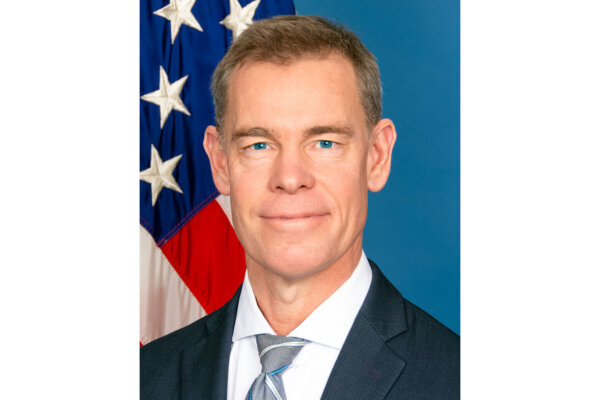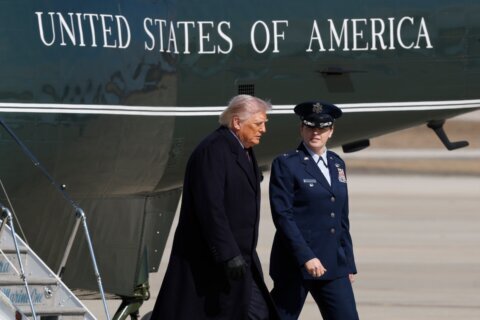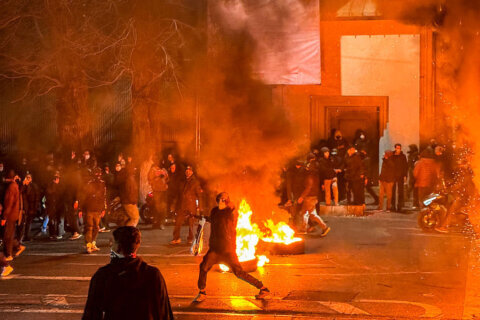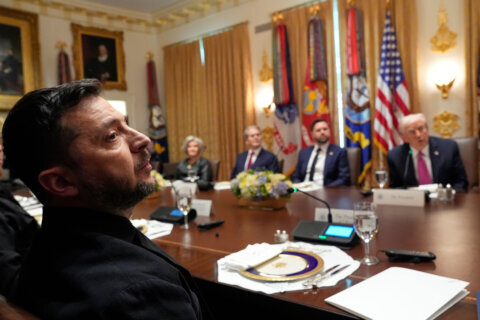Two months into the job, the head of the Washington Field Office (WFO) of the FBI, is “concerned all the time” about a diverse group of threats facing the region.
Terrorism, spies and a wide variety of crimes dominate the attention of David Sundberg, Assistant Director in Charge at the Federal Bureau of Investigation.
While not pointing to any imminent threat, he said “the District of Columbia, being the seat of the federal government, is a symbolic target for those who might attack our way of life using violence in furtherance of their beliefs.”
Speaking to a group of reporters at WFO’s headquarters, he said the unique nature of Washington requires that they focus on multiple avenues that a terror attack might emerge from.

Whether it’s a single, isolated individual inspired through ideology to commit acts of violence; or a group of individuals plotting to attack symbols of U.S. power, Sundberg said the outcome could be “dramatically impactful.”
Since 2001 hundreds of terrorists, including top leaders like Osama bin Laden, Ayman al Zawahiri and Anwar al-Awlaki from Al Qaida, and Abu Bakr Al Baghdadi of ISIS, have been killed.
But that has done little to blunt the long-term resolve of those organizations to attack the U.S.
The Taliban, during the early 2010s, often taunted the U.S. and its European allies saying, “You have the watches, but we have the time.”
It was a threat that other terror groups adopted that chills western counterterrorism officials to the bone.
“It means we need to be perfect 100% of the time. They need to be perfect only once,” said Hans-Jakob Schindler, Sr. Director of the Counter Extremism Project, in an interview.
Schindler said terror groups are essentially waiting for the right opportunity to attack western countries.
“They recognize that we have all the technology, that we have the military might, and great intelligence agencies,” Schindler said. “They also understand that we have very evolved and complex societies and economies.”
But most importantly, he said, “They also know we can’t predict when they will attack.”
Sundberg draws praise from international counterterrorism officials for his caution and concern, because of a dangerous geyser of arrogance bubbling up in the global jihadist community.
For terrorism organizations, “the last 24 months were glorious,” said Schindler emphatically.
“In their eyes, they defeated the international community in Afghanistan,” he said. “They defeated the international community and French forces, which are withdrawing from West Africa. In the grand scheme of things, the jihadists really feel they have the upper hand right now.”
Spies are an omnipresent concern
Another constant Washington battle for “the bureau,” as the FBI is known, is espionage.
Russia and China are, according to Sundberg, at the heart of “two of the biggest efforts we have.”
He was referring to counterintelligence.
The term counterintelligence, according to the National Institute of Standards and Technology, means “information gathered and activities conducted to protect against espionage, other intelligence activities, sabotage, or assassinations conducted by or on behalf of foreign governments or elements thereof, foreign organizations, or foreign persons, or international terrorist activities.”
“There are many thousands of current and former U.S. government employees, in the region, that either have or recently had access to classified U.S. government information,” he said.
Sundberg is worried they could be targeted.
An FBI official told WTOP in a 2019 interview, “There’s a large population (of government officials) in retirement or getting close to retirement. The baby boomers are all leaving and that population is looking for post-government jobs.”
The archetypal international spy in Washington for many years has been undercover diplomats and foreign intelligence agency assets.
There are more than 175 foreign embassies, residences, chanceries and diplomatic missions in D.C. Tens of thousands of international students reside in the region. And untold numbers of business people with links to foreign intelligence services flow in and out every day.
The training of highly skilled spies, especially those who work in Washington, makes them virtually invisible to ordinary, unsuspecting people — another reason why WFO’s work is so important.
Violent crime concerns
As the national capital region reels from a surge of crimes including murder, assault, carjacking, burglary and more, WFO plays a role in helping local law enforcement when their jurisdictions cross.
Sundberg, who was a supervisory special agent with the National Capital Response Squad (2013-2016) which facilitates FBI engagement in potential crisis matters within the National Capital Region, said communities play a big role in preventing crimes, as well as solving them.
“These crimes will not be solved by any one agency, one organization, or one neighborhood group,” he said. “It’s going to take all of us across these communities to make a real impact.”
There is a common thread that runs through many of the crimes being committed in Washington — guns.
“We are certainly very concerned with violent crime, especially gun-related violent crime,” Sundberg said.
And as a former police officer in New Hampshire, Sundberg said he learned the ultimate importance of communities in solving crimes.
“It is absolutely essential that members of the communities that are being victimized by these violent gun crimes are willing to come forward and discuss these matters.”
Despite what appears to be a full plate, WFO has many more responsibilities including investigating white-collar crime, and criminal cyber activity, gathering intelligence; and fulfilling an international role.
It’s one of four FBI field offices that have investigative responsibilities outside of the U.S. WFO handles the Middle East and Eastern Europe regions.








